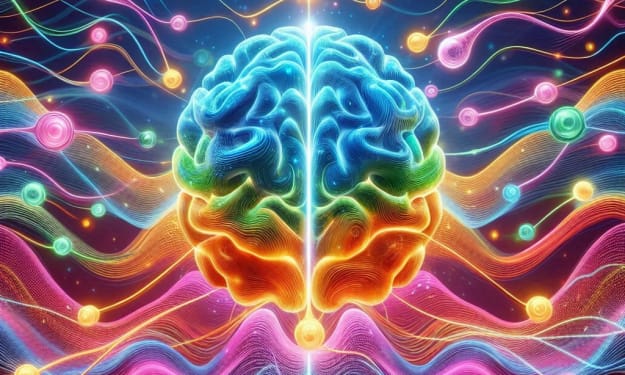The Impact of Artificial Intelligence on Digital Marketing
Is SEO Dead?

Artificial Intelligence (AI) has revolutionized the digital marketing landscape, offering innovative solutions to enhance customer experiences, optimize marketing strategies, and drive business growth. AI refers to the simulation of human intelligence processes by machines, including learning, reasoning, and self-correction. In the realm of digital marketing, AI technologies such as machine learning, natural language processing, and predictive analytics have empowered marketers to gain valuable insights, automate repetitive tasks, and deliver personalized content at scale.
AI has become an indispensable tool for digital marketers, enabling them to analyze vast amounts of data to uncover patterns and trends that would be impossible to identify through traditional methods. By leveraging AI-powered tools, marketers can gain a deeper understanding of consumer behavior, preferences, and purchase patterns, allowing them to tailor their marketing efforts more effectively. Furthermore, AI has the capability to automate routine tasks such as data analysis, content curation, and campaign optimization, freeing up marketers to focus on strategic initiatives and creative endeavors. As AI continues to advance, its role in digital marketing will only become more prominent, reshaping the way businesses connect with their audiences and drive meaningful engagement.
Key Takeaways
- Artificial Intelligence (AI) is revolutionizing digital marketing by enabling more personalized and targeted strategies.
- AI plays a crucial role in SEO strategies by analyzing data, predicting trends, and optimizing content for better search engine rankings.
- AI is transforming digital marketing campaigns by automating tasks, analyzing consumer behavior, and providing valuable insights for more effective campaigns.
- AI has a significant influence on web design and user experience by personalizing content, improving website navigation, and enhancing overall user satisfaction.
- Social media marketing can be leveraged with AI for better audience targeting, content optimization, and real-time customer engagement.
The Role of AI in SEO Strategies
AI has significantly impacted search engine optimization (SEO) strategies, empowering marketers to enhance their website's visibility and relevance in search engine results pages. With AI-powered algorithms constantly evolving, search engines like Google can better understand user intent and deliver more accurate and personalized search results. This has prompted marketers to shift their focus from keyword-centric strategies to creating high-quality, relevant content that resonates with their target audience. AI has also enabled the development of sophisticated SEO tools that can analyze website performance, identify technical issues, and recommend actionable insights to improve search rankings.
Moreover, AI has facilitated the implementation of natural language processing (NLP) in SEO, allowing search engines to interpret and understand the context of user queries more effectively. This has led to the rise of voice search optimization, as AI enables search engines to comprehend conversational language and deliver relevant results based on spoken queries. As a result, marketers are adapting their SEO strategies to accommodate voice search trends, optimizing content for long-tail keywords and conversational phrases. With AI driving advancements in SEO, marketers must stay abreast of these developments and continually refine their strategies to ensure their websites remain competitive in search rankings.
How AI is Transforming Digital Marketing Campaigns
AI has revolutionized digital marketing campaigns by enabling marketers to deliver personalized and targeted content at scale. Through machine learning algorithms, AI can analyze vast amounts of consumer data to identify individual preferences, behaviors, and purchase patterns. This allows marketers to create hyper-personalized campaigns that resonate with specific audience segments, driving higher engagement and conversion rates. Additionally, AI-powered predictive analytics can forecast future trends and consumer behaviors, empowering marketers to anticipate market shifts and proactively adjust their campaigns for optimal performance.
Furthermore, AI has facilitated the automation of campaign management processes, streamlining tasks such as audience segmentation, ad placement, and performance tracking. This not only saves time and resources but also allows marketers to allocate their efforts towards strategic planning and creative ideation. With AI continuously optimizing campaign performance based on real-time data insights, marketers can achieve greater efficiency and effectiveness in their digital marketing efforts. As AI continues to evolve, it will further transform digital marketing campaigns by enabling even more sophisticated targeting capabilities and predictive modeling.
The Influence of AI on Web Design and User Experience
AI has had a profound impact on web design and user experience, revolutionizing the way websites are created and optimized for engagement. AI-powered tools can analyze user behavior and preferences to inform website design decisions, such as layout, navigation, and content placement. This data-driven approach allows designers to create websites that are tailored to meet the needs and expectations of their target audience, resulting in a more intuitive and personalized user experience. Additionally, AI has facilitated the development of chatbots and virtual assistants that can interact with website visitors in real-time, providing personalized recommendations and support.
Moreover, AI has enabled the implementation of dynamic content optimization on websites, allowing for real-time customization of content based on user interactions and preferences. This not only enhances user engagement but also improves conversion rates by delivering relevant content that resonates with visitors. Furthermore, AI has empowered designers to create responsive websites that adapt to individual user preferences and behaviors, providing a seamless and personalized browsing experience across devices. As AI continues to advance, it will further influence web design and user experience by enabling more sophisticated personalization capabilities and interactive features.
Leveraging AI for Social Media Marketing
AI has transformed social media marketing by enabling marketers to analyze vast amounts of social data to gain valuable insights into consumer behavior and preferences. Through machine learning algorithms, AI can identify patterns and trends in social media conversations, allowing marketers to understand sentiment, identify influencers, and anticipate market shifts. This enables marketers to create more targeted and relevant social media campaigns that resonate with their audience, driving higher engagement and brand loyalty. Additionally, AI has facilitated the automation of social media management processes, allowing marketers to schedule posts, analyze performance metrics, and engage with followers more efficiently.
Furthermore, AI has empowered marketers to leverage social listening tools that can monitor conversations across social media platforms in real-time. This enables marketers to stay abreast of trending topics, identify opportunities for engagement, and address customer concerns promptly. Additionally, AI has facilitated the development of chatbots for social media platforms, allowing brands to provide personalized customer support and recommendations at scale. As AI continues to advance, it will further revolutionize social media marketing by enabling more sophisticated targeting capabilities and predictive modeling for campaign optimization.
The Future of AI in Digital Marketing
The future of AI in digital marketing holds immense potential for further innovation and transformation. As AI technologies continue to advance, marketers can expect more sophisticated tools for data analysis, predictive modeling, and personalized content creation. This will enable marketers to deliver even more targeted and relevant campaigns that resonate with individual consumers on a deeper level. Additionally, AI will continue to drive advancements in marketing automation, streamlining processes such as lead nurturing, customer segmentation, and campaign optimization.
Moreover, the integration of AI with emerging technologies such as augmented reality (AR) and virtual reality (VR) will open up new opportunities for immersive and interactive marketing experiences. Marketers can leverage AI-powered insights to create personalized AR/VR experiences that engage consumers in innovative ways. Furthermore, AI will play a pivotal role in shaping the future of voice search optimization and conversational marketing strategies as more consumers embrace voice-activated devices for search and commerce.
Challenges and Opportunities of Integrating AI into Digital Marketing Strategies
While the integration of AI into digital marketing presents numerous opportunities for innovation and growth, it also comes with its own set of challenges. One of the primary challenges is the need for skilled professionals who can harness the power of AI technologies effectively. Marketers must acquire the necessary expertise in data analysis, machine learning, and predictive modeling to leverage AI tools for optimal results. Additionally, there are concerns surrounding data privacy and ethical considerations when using AI for consumer targeting and personalization.
However, the opportunities presented by integrating AI into digital marketing strategies far outweigh the challenges. Marketers have the opportunity to gain deeper insights into consumer behavior, optimize campaign performance through predictive analytics, and deliver personalized experiences that drive meaningful engagement. Furthermore, AI enables marketers to automate routine tasks and allocate resources towards strategic initiatives that drive business growth. As AI continues to evolve, it will empower marketers to unlock new possibilities for creativity and innovation in digital marketing strategies.
In conclusion, the integration of AI into digital marketing has ushered in a new era of innovation and transformation. From SEO strategies to web design, social media marketing, and beyond, AI has revolutionized the way marketers connect with their audiences and drive meaningful engagement. As AI technologies continue to advance, marketers must embrace these innovations to stay ahead of the curve and deliver personalized experiences that resonate with consumers on a deeper level. While there are challenges associated with integrating AI into digital marketing strategies, the opportunities for growth and innovation are boundless as businesses continue to harness the power of AI for strategic advantage.
FAQs
What is Artificial Intelligence (AI) in the context of digital marketing?
Artificial Intelligence (AI) in digital marketing refers to the use of advanced technologies such as machine learning, natural language processing, and data analytics to automate and optimize marketing processes, personalize customer experiences, and improve overall marketing performance.
How does AI impact digital marketing?
AI has a significant impact on digital marketing by enabling marketers to analyze large volumes of data, automate repetitive tasks, personalize content and recommendations, optimize ad targeting and bidding, and enhance customer interactions through chatbots and virtual assistants.
What are the benefits of using AI in digital marketing?
Some of the benefits of using AI in digital marketing include improved targeting and personalization, enhanced customer experience, increased efficiency and productivity, better decision-making through data analysis, and the ability to adapt to changing market trends and consumer behavior.
What are some examples of AI applications in digital marketing?
Examples of AI applications in digital marketing include predictive analytics for customer behavior, chatbots for customer service and support, personalized product recommendations, content generation and optimization, dynamic pricing and ad targeting, and sentiment analysis for social media monitoring.
What are the potential challenges of implementing AI in digital marketing?
Challenges of implementing AI in digital marketing may include the need for skilled professionals to manage AI systems, concerns about data privacy and security, the potential for algorithm bias, and the initial investment required for AI technology and infrastructure.
About the Creator
Enjoyed the story? Support the Creator.
Subscribe for free to receive all their stories in your feed. You could also pledge your support or give them a one-off tip, letting them know you appreciate their work.





Comments
There are no comments for this story
Be the first to respond and start the conversation.